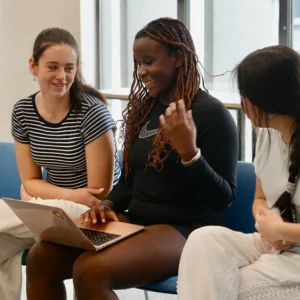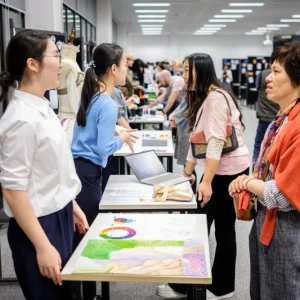Children love to play. It’s just the nature of their age. Early childhood is a fascinating stage where millions of neuron connections are formed per second, creating the foundation for any future development. Playing is a way for a child to explore the world around them and to form connections with others.
Play based learning in early childhood education incorporates play activities in children’s education and development, enhancing their curiosity and improving their overall academic success.
What is Play Based Learning?
Play based learning is distinct from the concept of play in that there is a more pronounced focus on learning instead of playing for the sake of pure enjoyment.
There are two primary types of play among children: free play and guided play, both of which can contribute to play based learning.

In free play activities, children play with themselves or their peers without guidance or interference from the educator, while in guided play activities, an educator is present to guide them and provide instructions. Both types of play contribute greatly to play based learning, so educators should take care to include both types in their play based learning programmes.
Four Stages of Learning Through Play
Experts have categorised play based learning preschool into four distinct phases to facilitate its integration into the children’s curriculum.
- Sensory-Body Play and Safety Attachment Play: At this level, activities in play based learning kindergarten focus on giving children opportunities to physically interact with the world around them. The approach can also include activities that give the child love and affection.
- Creative Explorative Play: In this stage, children are encouraged to explore the world around them even further by messing around with objects or environments surrounding them. At this stage, children might make a mess whenever they play, but instead of chastising them, parents and educators should play along and help them understand the boundaries.
- Meaning-Making Play: At this stage, children begin to connect the dots and sort their ideas. This stage is where children build their foundation in language. They often play the same game over and over again to make sense of a pattern.
- Higher Play: When children reach a certain developmental stage, they engage in higher play, which requires creativity and imagination. Play at this stage often involves creating stories or role-playing with their peers.
Top 5 Benefits of Play Based Learning
Through rigorous scientific studies, experts have identified 5 key benefits of play based learning.

- Enhance Language Acquisition: Play based learning in early childhood encourages children to discover and use vocabulary in an authentic and relevant way, promoting the child’s language acquisition capability.
- Enhance Creativity and Imagination: Children learn to be more creative and imaginative when playing, especially when there are elements of narrative. This will be especially useful as it helps them develop better social skills later in life.
- Build Socio-Emotional Skills: When children play with their friends, they learn how to communicate with their peers and improve their teamwork skills. Furthermore, play based learning is a wonderful opportunity for children to learn de-escalation and conflict-resolve skills as well, but only with supervision by an educator.
- Encourage Love for Learning: Learning through play is a great way to instill a passion for learning in children. Children learn best through interacting with the world around them, and all these play activities bring them endless joy. If their lessons are reduced to nothing but lectures, this passion will die out quickly.
- Strengthen Motor Skills: Activities such as painting and sports require children to be active, which helps improve their motor skills and overall health.
How to Improve Play Based Learning in Early Childhood
Educators will face a challenge in implementing play based learning in early childhood.

Fortunately, there are some basic guidelines to follow.
- Improve via drama playing
- Improve via clay playing
- Improve via creative playing
1. Improve via Drama Playing
Educators will focus on fostering children’s language and narrative capabilities in drama play. Children will take on a different role and personality when they are in a drama play, offering them a great chance to let their imagination fly. UNIS Hanoi offers plenty of drama-playing opportunities through our drama production club, which accepts students from grades 1 to 5!
2. Improve via Clay Playing
Playing with clay is another great way for children to improve their creativity while having fun. Under the guidance of experienced UNIS educators, your children can join a clay playing club and enjoy their life to its fullest with their peers.
3. Improve via Creative Playing
Creative activities such as arts and crafts are not just fun but also extremely educational. Children in their early childhood years enjoy creating new objects, so creative playing will be a great choice for them. At UNIS Hanoi, we offer a vast array of creative play activities such as creative painting, arts and crafts, origami club, and much more so that children can push their creativity to its limit.
Top 5 Elements of Play Based Learning at Home
To successfully implement play based learning at home, parents will find it useful to have the presence of these five elements.

1. Self-Reflection
Self-reflection refers to a child’s capability to choose how they want to play. Parents should only play a supportive role in children’s games and let the child explore the world at their own pace. Sometimes, children might not like a guided play game session, and that is totally fine. The key here is to let the child decide what is fun for them.
2. Make It Fun
The point of play based learning is to help children learn through fun activities.

A tip to make play based learning fun: Don’t be too afraid of letting children make a bit of a mess, as that is how they explore the world around them.
3. Keep It Unstructured
As a continuation of the element above, play based learning activities should not have a rigid structure with lots of rules.
4. Focus on the Process
When children start an activity, avoid giving them detailed instructions or the entire process. Let them take the time to learn through trial and error.
5. Encourage Imagination
Parents can encourage children’s imagination and creativity by promoting pretend play or roleplaying. When children role-play as someone else, they develop their language as well as narrative capabilities, which promotes creativity.
Fostering Creativity and Curiosity with Play Based Learning
Play based learning in early childhood is an approach that combines learning and playing into integrated lessons, promoting better creativity and curiosity in children.

UNIS Hanoi is among the pioneers in play based learning, offering numerous fun co-curricular activities for children to participate in. Apply now to see your child’s development flourish.
FAQs about Play Based Learning
In this FAQ section, we will provide answers to some of the most popular questions regarding play based learning.
- How can a child benefit from play-based learning?
Play based learning encourages the development of critical thinking skills as children explore, experience, and solve problems in a playful environment. When children can explore the world at their own pace and have fun, they are more likely to absorb new knowledge and lessons.
- How does play based learning compare to traditional educational methods?
Regarding the effectiveness of play based learning, the American Psychological Association has found a positive correlation between play and children’s academic success. Compared to traditional educational methods, play based learning is much more flexible and enjoyable for children, making it much more engaging.
- How is play-based learning balanced with ensuring children meet educational milestones?
Play based learning is balanced with ensuring children meet educational milestones through careful planning and observation by educators.
Teachers can set up environments that are rich in materials and opportunities to explore, which will allow children to learn through play. Having a solid curriculum with identified key skills will also help educators conduct more effective lessons.
REFERENCE:
Zosh, J. M., Lytle, S. R., Golinkoff, R. M., & Hirsh-Pasek, K. (2012). Putting education in “educational” apps: Lessons from the science of learning. Psychological Science in the Public Interest, 16(1), 3-34. https://doi.org/10.1037/a0029321
Author Profile

- UNIS Hanoi is ever-evolving, but one thing that remains is our passion to nurture and equip students to be agents of change for a better world.
Latest entries
 UNIS Hanoi Address1 Jan 2026Reflection Questions for Students: A Practical Guide to Deeper Learning
UNIS Hanoi Address1 Jan 2026Reflection Questions for Students: A Practical Guide to Deeper Learning Calendar, News and Publications14 Dec 2025UNIS Hanoi: Leading the Way in Multicultural Environmental Education
Calendar, News and Publications14 Dec 2025UNIS Hanoi: Leading the Way in Multicultural Environmental Education Calendar, News and Publications30 Oct 2025What is an IB School? A Complete Guide for Parents
Calendar, News and Publications30 Oct 2025What is an IB School? A Complete Guide for Parents Calendar, News and Publications29 Oct 2025School Tour at UNIS Hanoi – A Comprehensive Guide for Parents
Calendar, News and Publications29 Oct 2025School Tour at UNIS Hanoi – A Comprehensive Guide for Parents
